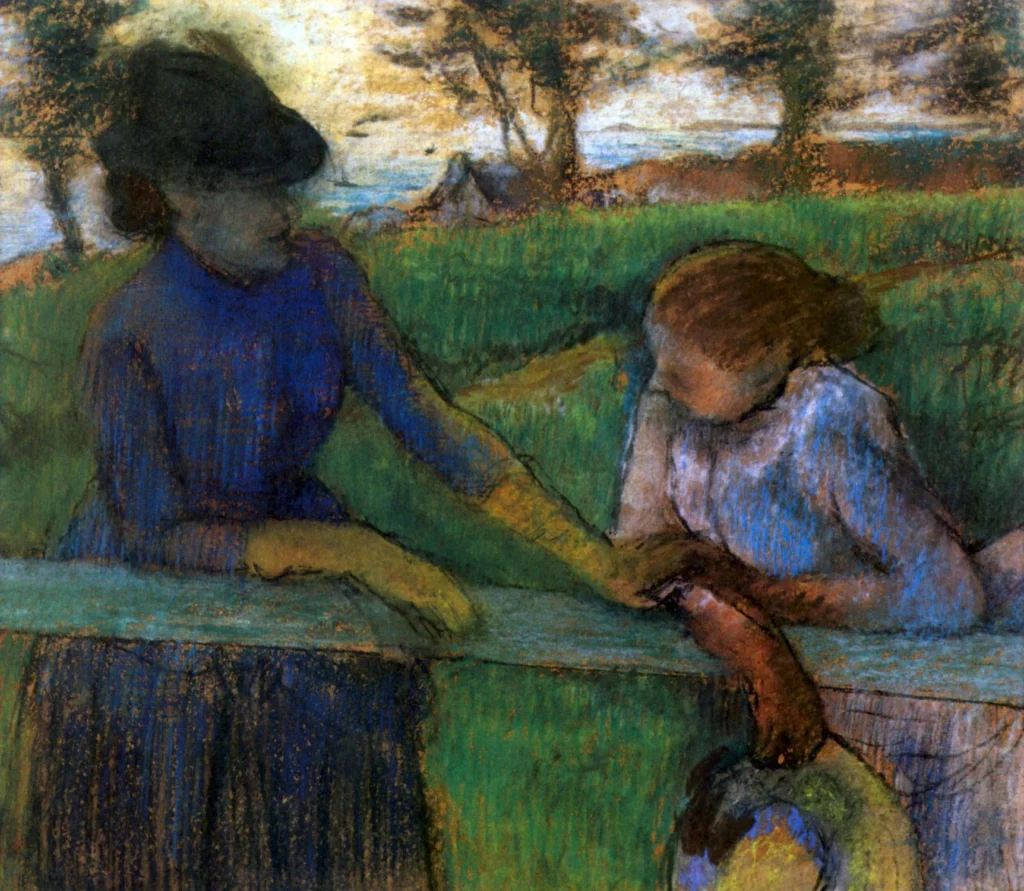I had dinner with a couple of old friends the other night. I’d been putting it off for weeks, although I couldn’t say why, exactly. I enjoy their company quite a bit, but when one or the other proposed a certain date, it never seemed to fit into my schedule; I was too busy, too tired or I just didn’t want to go when the suggested night came around. Finally, though, it could be put off no longer and I went out to see them, and it was … wonderful. As it always is.
As we chatted over our meal, the hours stretched out and the waitstaff began turning chairs onto tabletops. We’d talked about nothing and yet it was everything, and I wondered why I’d let the time elapse so long between our visits. As I left and drove away I nestled into the feeling of calm and peace enveloping me in the wake of our visit. Yet later, when my husband asked what we talked about, I was at a loss to report any news. No one had changed jobs or suffered a major loss, none of us had anything really interesting happen in the intervening weeks since we’d last seen each other. “Nothing,” I was forced to admit, feeling like my own kids after a day at school when I asked about their day.
“But you were gone for hours!” he pointed out. “What did you guys talk about?”
I thought back over the conversations, trying to pick out the important news or share some exciting tidbit. Try as I might, my memory yielded nothing. “Same old, same old,” I said.
Why are friendships so important when, most of the time, we discuss mundane matters and can barely even remember what we talked about? Why do we feel better after we meet with old companions even if there is nothing to discuss? According to the American Psychological Association1, having friends has a number of benefits, both psychological and physiological. Having good, supportive friends can even change the way we respond to stress. Blood pressure reactivity is lower when people talk to a supportive friend rather than a friend whom they feel ambivalent about2. The APA points out that our culture puts a lot of value on romantic relationships, but friendships are crucial to happiness and well being throughout one’s life.
On the other hand, social isolation and a lack of close friendships can be damaging. Without anyone to talk to, tasks may feel harder than they really are, frustrations tend to mount faster, and perceptions can distort easier. Friendships can dispel or buffer some of these negativities that we are all prone to, but without someone to talk to, the loneliness can begin to feel overwhelming. Despite the risks, Americans are getting lonelier. In 2021, 12% of U.S. adults said they did not have any close friends, up from 3% in 19903. The gulf between us seems to be widening.
It doesn’t have to. The good news is that friends can be found anywhere, at any age, and easily maintained. The truth is that even though I kept putting my own friends off, all I really needed to do to reconnect was to make time for them, and they were there. Friendship can come in many forms, and it can be as simple as a call or a text. Psychologists have found that even casual relationships can give our mental health a boost. Your next interaction doesn’t have to be a lifelong friend, it can be anyone: the cashier at the grocery store or a hot dog vendor. Where there is a person, there is an interaction. Simply ask a question and you’ve started a conversation. A conversation leads to an acquaintance and any acquaintance can be a friend. Conversation is connection, and connection is happiness.
- https://www.apa.org/monitor/2023/06/cover-story-science-friendship ↩︎
- Holt-Lunstad, J., et al., Annals of Behavioral Medicine, Vol. 33, No. 3, 2007 ↩︎
- The State of American Friendship: Change, Challenges, and Loss,” Survey Center on American Life, 2021 ↩︎



